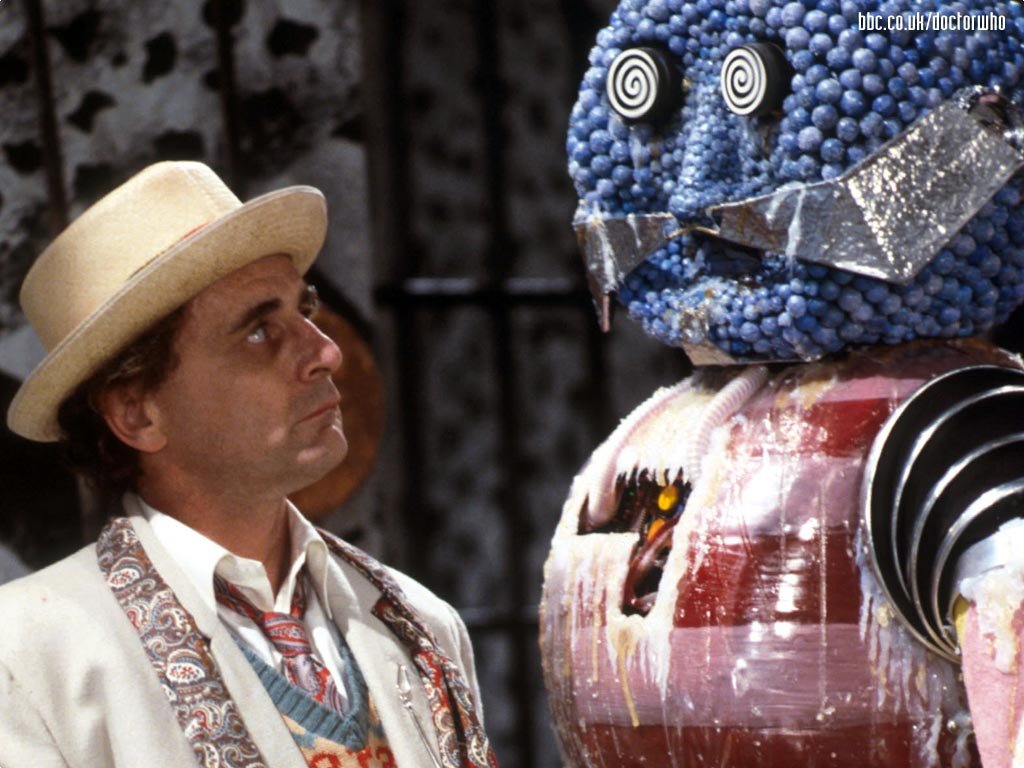Sylvester McCoy has contributed to the on-off debate that Doctor Who is a political programme (or should that be, a left-leaning programme?).
Speaking at a recent BFI screening of the 1988 adventure, The Happiness Patrol, to mark the release of that story as part of Doctor Who: The Collection Season 25 on Blu-ray, McCoy insisted that Doctor Who has “always been political” – right back to the 1960s.
McCoy was answering a question about how the show’s storytelling can incorporate a political message. The Happiness Patrol was intended to be a political satire, according to the Radio Times, with the villain Helen A (Sheila Hancock) intended to be a caricature of 1980s Prime Minister Margaret Thatcher. Sylvester insisted:
“It’s always been political. In the ’60s, I got hooked on Doctor Who, and the reason why was because of the politics in it, subtly put there.
“The sixties, they started to swing, they started to change… it was a kind of a revolution, a peaceful and wonderful revolution going on, and Doctor Who was the only decent thing on [the BBC] at the time that had anything that talked to young people like me in a political way.
“So it’s always been political, as far as I’m concerned.”
Chris Clough, who directed The Happiness Patrol, has pursued a career as a television producer – not least of the acclaimed Mr Bates vs the Post Office, starring Toby Jones (the Dream Lord in Amy’s Choice) and documenting the Horizon scandal at the Post Office. (As a consequence of failures in the Horizon computer system, British Sub-postmasters were wrongly accused of stealing money and were jailed.) At the BFI screening, Clough said that all good drama should have some sort of political edge:
“If you do drama without any purpose then it disappears into the ether and it’s just bubblegum.
“So every drama has to have power, which is the message, and that means it has to have some political debate going on within it. Otherwise, what else is it about, really?
“It’s about people’s struggles against something, or they’re trying to make [something] of their lives and something comes against you.”
Sheila Hancock, who played Helen A in The Happiness Patrol, agreed, saying:
“That’s what arts and the Post Office thing and all that does… it tells the nation what’s happening. It’s our duty to do that.”
Doctor Who has often been identified as a left-leaning show, often by commentators on the right of politics. In his diaries, Andrew Cartmel wrote of Sylvester McCoy sighing with disappointment on the morning after Mrs Thatcher’s third election victory in 1987.


